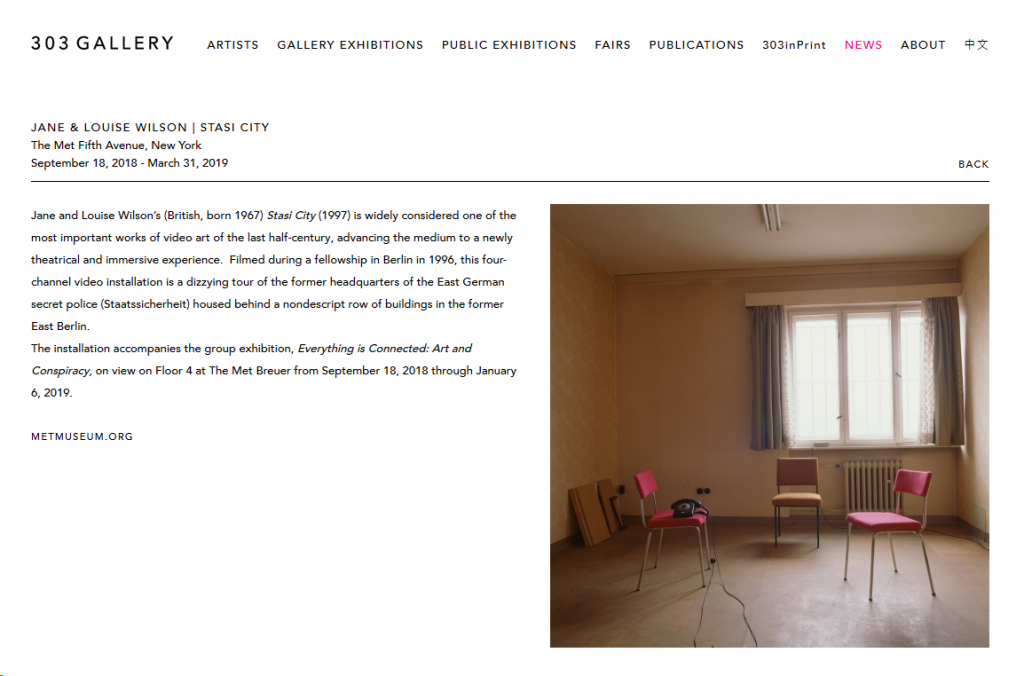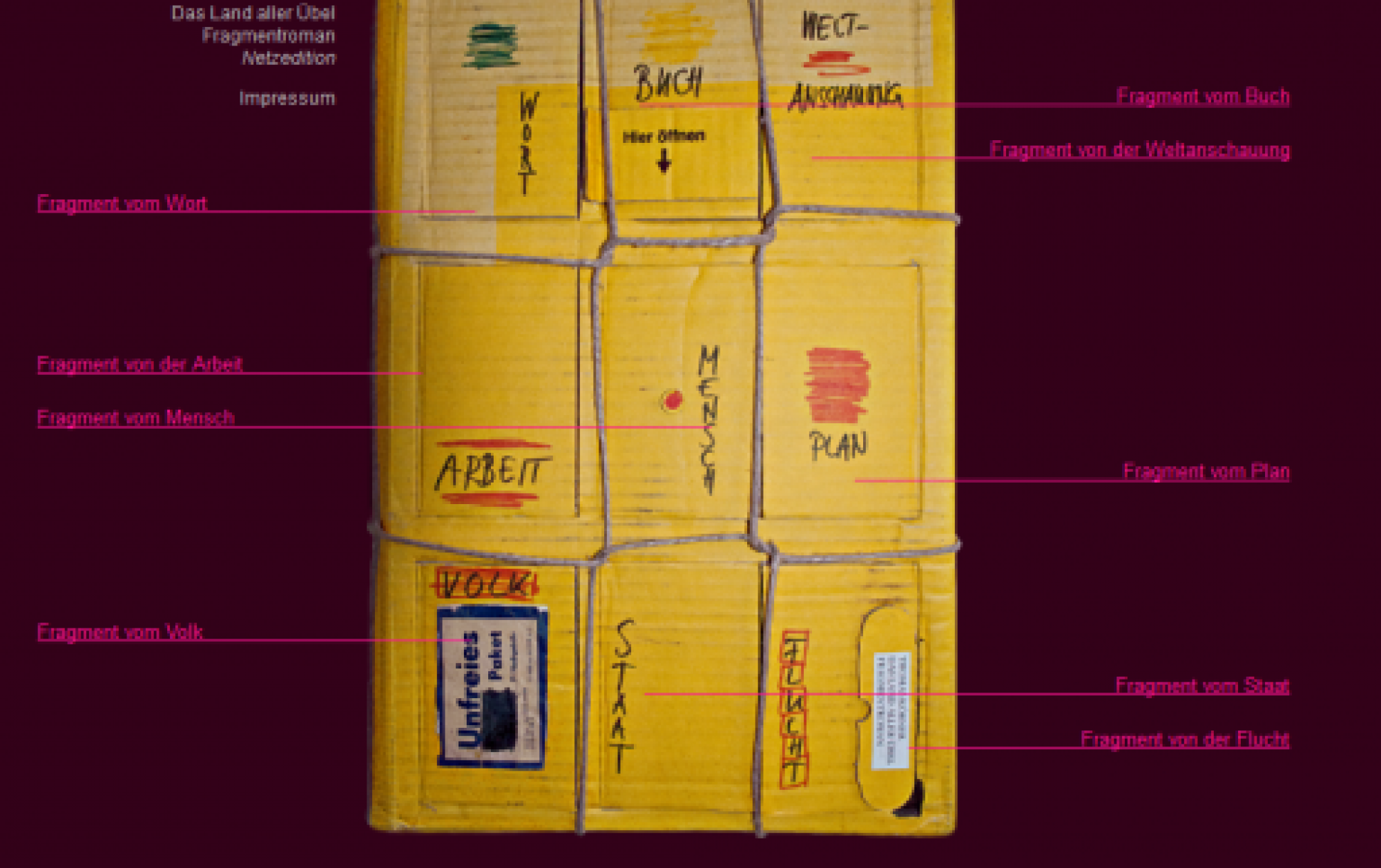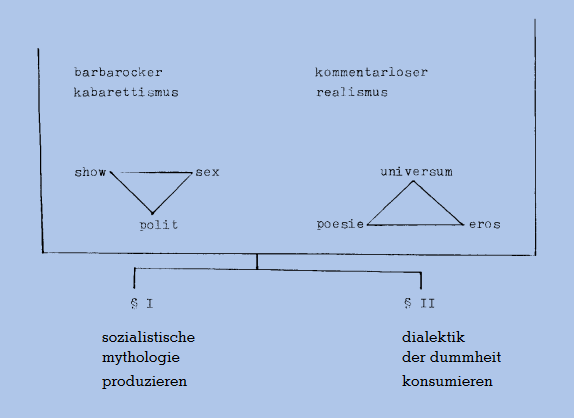Körner recognizes already in the seventies that the novel form is not ideal for the screen. He is looking for new forms for his texts. He also suspects that when reading on screen the reader will not focus as much as when reading a book. He is looking for new ways of designing texts that appeal to the reader. During the time of the 70s in the German Democratic Republic (GDR), which he calls vacuole, that he can be “caught” by the state security (stasi) at any time, if he writes down dissident thoughts. The grudge of the surveillance system STASI was not only directed against political criticism, but also against new (art) procedures that do not correspond to socialist realism. New methods were e.g. Cut-ups by William Burroughs, possibly created in a state of intoxication, and new techniques such as visual poetry and surrealistic writing. A new tolerant and open thinking was demanded by the appeal of Leslie Fiedler in 1968: “Cross the border, close the gap”.
As Körner intended no peeking IM (IM was called an informal member of the state security system in the GDR) should find a coherent manuscript with him, he started writing on index cards. In addition, in his narration he switches between a realistic and an ironic language, the voice of the commentary-less realist or barbaroccan cabaret artist. He developed his reading games for two reasons: his fun idea to use socialistic game theory on one hand and thereby hiding his regime-critical thoughts. The staff of the State Security (STASI) lurked everywhere. That’s why you have to mask yourself and your writing.
The American artists Jane and Louise Wilson impressively captured the Stasi’s intimidation and torture tools in Hohenschönhausen Prison in the GDR in a video installation titled STASI CITY. This is currently being shown again in the exhibition Everything is Connected: Art and Conspiracy at the Metropolitan Museum New York:

Information about The Met and Jane and Louise Wilson with STASI CITY


